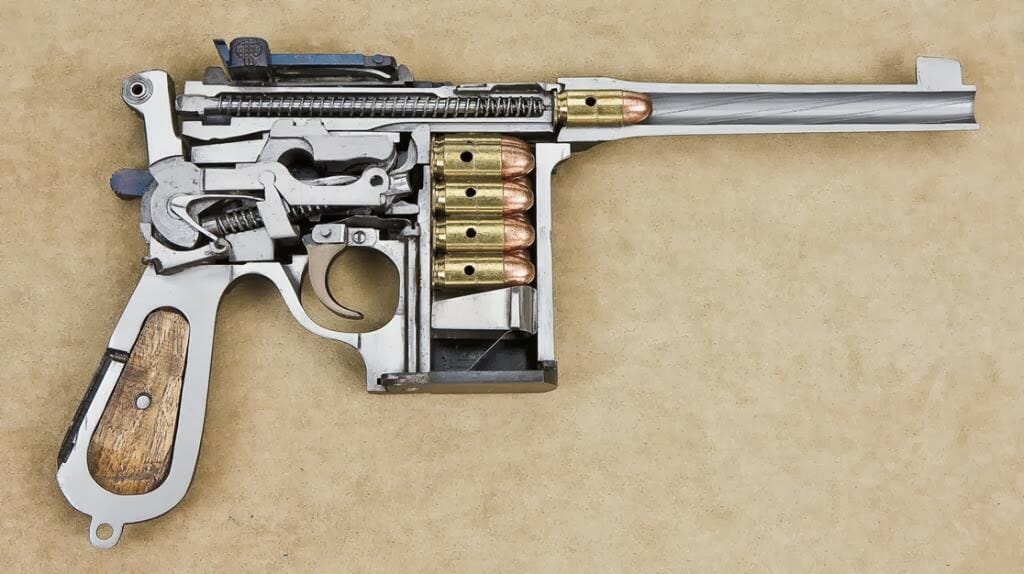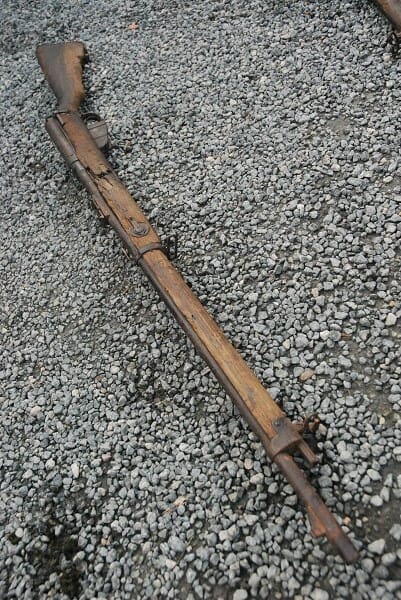UK Citizens will Have to Register all Deactivated Firearms
The Brexit clock is once again ticking, and gun control advocates in the UK are eager to preserve every bit of the EU’s anti-gun directives as possible.
On Dec. 12, Britons will be casting their ballots in their general election but will also that day be required for the first time to register a “deactivated firearm” to the authorities when being transferred from person to person.
Regardless of whether a gun has been chopped in pieces, welded to the point of non-functionality, filled with cement, or buried under the elements for decades, UK citizens will have to register all deactivated firearms under both a 2017 EU order and the subsequently approved Firearms Regulations 2019 that makes it a criminal offense to transfer a deactivated firearm to another person unless both giver and receiver register the transaction with the UK government.
Let’s say you find a .303 Lee-Enfield buried underneath the marsh of a World War I battlefield, rusted beyond hope of a successful restoration. If you clean it up and sell it to a collector, you could find yourself on the hook for a £200 fine plus a permanent mark on your criminal record.
This has antiquities dealers and hobbyists baffled. But the EU’s rationale goes like this: “Taking into consideration the high risk of reactivating improperly deactivated firearms and in order to enhance security across the Union … a definition of deactivated firearms should be given that reflects the general principles of deactivation of firearms,” the 2017 directive stated.
Further: “Member States shall make arrangements for the deactivation of firearms to be verified by a competent authority in order to ensure that the modifications made to a firearm render all its essential components permanently inoperable and incapable of removal, replacement or modification in a manner that would permit the firearm to be reactivated in any way. Member States shall, in the context of that verification, provide for the issuance of a certificate and record attesting to the deactivation of the firearm and the apposition of a clearly visible mark to that effect on the firearm.”
EU officials issued regulations in 2008 and 2015 regarding the registration of deactivated firearms, but the new directive places so-called category-A and category-B deactivated firearms under the same penalties as category-C (live) firearms.
While the deadline for the Brexit is Jan. 30, 2020 — an extension of the previous March 29 and Oct. 31, 2019, dates — there is still much negotiation to be done as part of the formal separation, which may take years.
This does not stop forces in either coalition of Britain’s complex political landscape from using Brexit to their advantage. It has been referred to as a game of 3D chess only for the master chess player. As it stands now, both liberals and conservatives have been evenly matched, which has extended the Brexit deadline with little consequences. As such, there is currently no majority for any party in English Parliament, and Prime Minister Boris Johnson leads with a razor-thin parliamentary majority. December’s elections may change that one direction or the other.
ANALYSIS: While firearm safety is the face value reason for the stricter regs, liberals in the UK must grapple with a background of disarming its people and what consequences that may carry.
As one lesson from history: Switzerland was never taken over by Adolf Hitler’s regime (which itself refused Jewish citizens from owning guns) — perhaps due in large part to a law which required every citizen to own a gun.
Such anti-gun forces and collectivist attitudes still exist in Europe, and in large measure. They will take advantage of any opportunity (such as a rapidly approaching deadline) they can to further clamp down on the natural right of the people to defend themselves, even as violent attacks increase. And they’re expanding their efforts, going as far as to ban certain types of knives and to discourage their carry.
If knives are a problem, too, then we know it cannot be just about firearm safety. This is about controlling the population as much as possible before Brexit makes it more difficult.
Andy Hogue is a longtime veteran of legislative politics and journalism. He makes frequent appearances on television and radio shows in the Austin area, his writing has appeared in numerous national and international media outlets. He has served as speechwriter for two state officials, publicity director for several projects at The Alamo, and was constituent services director for one of the last conservative Austin City Councilmen. For fun he likes to unload 13 rounds from his Browning Hi-Power.




